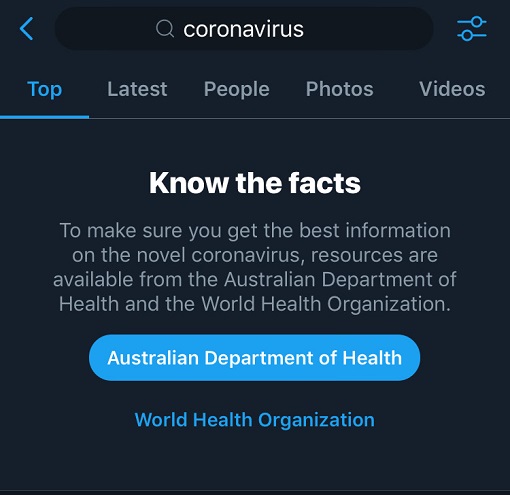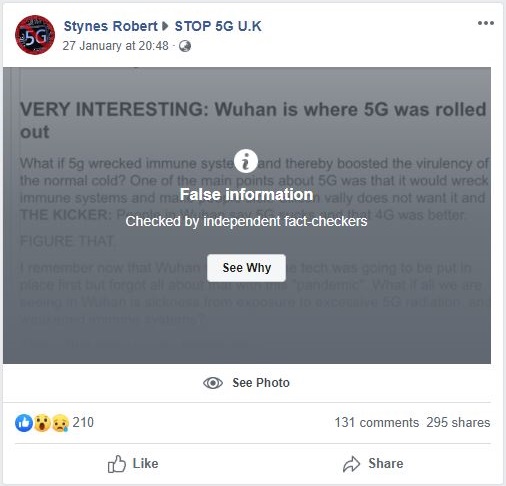As the novel coronavirus (2019-nCoV) continues its spread around the world, online communities are dealing with the propagation of misinformation and scams associated with the virus that is becoming a pandemic.
Nearly 15,000 cases have been confirmed worldwide and over 300 people been killed by the virus.
Panic over the highly contagious virus – which has now spread to 24 countries – has lead to public displays of racism toward Chinese Australians in part through the propagation of fake or misleading information online.
Queensland MP, Duncan Pegg, took to Twitter last week to discredit a fake Queensland Department of Health media release that warned people to avoid suburbs with high Chinese populations.
This media release is 100% FAKE!!! FAKE!!! FAKE!!! I don't normally like to give any credence to ppl who seek to malign our community but wanted to make things clear this time.
— Duncan Pegg MP (@DuncanPeggMP) January 27, 2020
To get latest updates go to the Queensland Health website & FB page. Any questions call 13HEALTH. pic.twitter.com/mIW2XVKTH7
Alternative medicine is also being spruiked on social media during the coronavirus outbreak. India's Ministry of Ayurveda, Yoga and Naturopathy, Unani, Siddha and Homeopathy (AYUSH) – a department designed to "ensure the optimal development and propogation of AYUSH systems of health care – said these traditional modes of healthcare "provides lifestyle advocacies to boost immunity which helps the prevention of various kind infectious diseases [sic]".
AYUSH system is based on traditional health practices. The traditional Healthcare system of the country provides lifestyle advocacies to boost immunity which helps the prevention of various kind infectious diseases. pic.twitter.com/MgElWbQatB
— Ministry of AYUSH (@moayush) January 29, 2020
India's Ministry of Health, meanwhile, has retweeted numerous recommendations from the World Health Organisation including that "there is no specific medicine recommended to prevent or treat the new coronavirus".
Also promoted online is a product called Miracle Mineral Solution (MMS) – also known as 20-20-20 spray – which its advocates say can kill the coronavirus.
China expanded its lockdown against the deadly new virus to an unprecedented 36 million people. New followers protect yourself with the 20-20-20 spray. Watch this video It will kill the deadly virus. https://t.co/cWfMQZHoY5
— chiefpolice (@chiefpolice2) January 25, 2020
MMS was slammed by the Australian Therapeutic Goods Administration in 2014 as being a poison.
Cybersecurity teams have also spotted misinformation about the cornoavirus being weaponised for cyberattacks.
IBM researchers have found a phishing campaign that uses the coronavirus as a means of delivering malware.
The spam emails warn that nearby residents have been infected with the virus and that more information is contained in an attached Microsoft Word document.
The document asks for macros to be enabled in Microsoft Word, which it then uses to drop in the Emotet trojan.
“We expect to see more malicious email traffic based on the coronavirus in the future, as the infection spreads,” the IBM researchers said.
But it’s not just scammers who have spread false information about the novel coronavirus.
An NBC report suggested that the coronavirus had been co-opted by misleading claims about the virus’ cause in order to drum up support for an animal rights charity.
Speaking about the posts, a PR person for the charity told NBC to “look at the results”.
“He’s had so many shares. He’s had so many followers, and donations have started coming in, so it’s clearly working,” the PR person said.
“People are watching, right?”
Stopping the spread
Social media and search platforms have opted for different methods to mitigate the spread of incorrect and potentially harmful information.
Google currently features an ‘SOS alert’ under searches for the coronavirus, showing safety tips about the virus as well as links to reputable news sources and websites like the World Health Organisation.
Twitter includes a redirect button taking users to official government and health organisation websites. According to a company blog post, the measure is a way of Twitter ensuring that “credible, authoritative information” is promoted by the platform.

Twitter wants you to know your facts about the coronavirus.
Facebook has also been proactive at curbing the spread of misinformation, saying that it is removing potentially dangerous information.
“Our global network of third-party fact-checkers are continuing their work reviewing content and debunking false claims that are spreading related to the coronavirus,” Facebook’s Head of Health, Kang-Xing Jin said in a post.
No, 5G and coronavirus are not related.
“When they rate information as false, we limit its spread on Facebook and Instagram and show people accurate information from these partners.
“We also send notifications to people who already shared or are trying to share this content to alert them that it’s been fact-checked.”











